‘Chantilly Lace’* is perhaps the saddest “Gin Palace” I’ve ever seen. Calm waterways the world over are populated by boats like this. They are known colloquially as “Gin Palaces”. To name this boat ‘Chantilly Lace’ seems a travesty to anyone who grew up with The Big Boppa belting out the song of the same name:
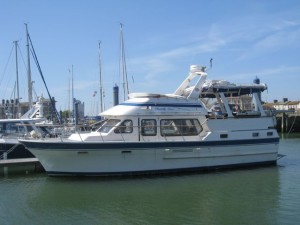 “Chantilly lace, and a purdy face, a pony tail a-hangin down, a wiggle in her walk, and a giggle in her talk, makes the world go round round round……” I may be imagining it but this boat seems way older than the song, yet the song is from the 50’s and the boat from the late 80’s.
“Chantilly lace, and a purdy face, a pony tail a-hangin down, a wiggle in her walk, and a giggle in her talk, makes the world go round round round……” I may be imagining it but this boat seems way older than the song, yet the song is from the 50’s and the boat from the late 80’s.
And this, from what I’ve seen, is what I imagine the story to be.
The boat’s owner lives aboard. Alone. Each day he washes the deck, with bucket, brush and detergent. He sprays the clear plastic awnings and wipes them down. He rubs the superstructure with a soft cloth. The boat looks tired when he has finished, it seems to groan and resent the attention. It has indelible stains down the sides and a thick ribbon of weed growing at the waterline. Each afternoon at about 6 the owner appears on deck with an ice bucket and glass. I never see him drink, and I never see him with company. The boat has not moved from it’s mooring for a long time. Neither has the owner.
(OH, how wrong I was! See * below.)
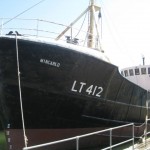 On the other side of our dock is another sad boat. The last of the side winding trawlers built in this town. Built in 1963. To a design of 1863.
On the other side of our dock is another sad boat. The last of the side winding trawlers built in this town. Built in 1963. To a design of 1863.
This boat is named Mincarlo, after the Charitable Trust that bought it as a museum to the Trawling Industry that once flourished in these ports, fishing (out) the Dogger Bank in the North Sea. 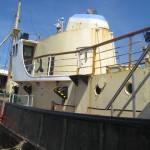 Volunteers of immense personality man and maintain the boat. Their infectious enthusiasm cover the flaws of both the boat and the industry far better than the bright fresh paint covers the rust.
Volunteers of immense personality man and maintain the boat. Their infectious enthusiasm cover the flaws of both the boat and the industry far better than the bright fresh paint covers the rust.
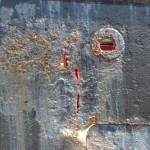 These volunteers, invariably small wiry men, who have lived the fisherman’s life, tell almost as much through their bearing, and through their pride in the boat and industry, as they do through their words. And what a hard life – ten to twelve days out, three days back on shore before going out again.
These volunteers, invariably small wiry men, who have lived the fisherman’s life, tell almost as much through their bearing, and through their pride in the boat and industry, as they do through their words. And what a hard life – ten to twelve days out, three days back on shore before going out again. 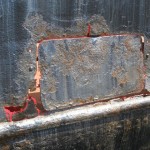 The routine on board – fish for 4 hours, rest for four hours, over and over and over. Resting and sleeping in the same clothes for all this time. Just stripping off the wet gear and perhaps an outer layer at the end of the shift. They spoke of the effort needed to pull in the nets, then the speed with with the fish were gutted then packed in ice.
The routine on board – fish for 4 hours, rest for four hours, over and over and over. Resting and sleeping in the same clothes for all this time. Just stripping off the wet gear and perhaps an outer layer at the end of the shift. They spoke of the effort needed to pull in the nets, then the speed with with the fish were gutted then packed in ice.
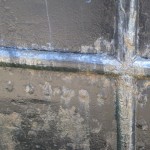 Yet the boat seemed so ancient, so lacking in refinement. It seemed that the British were blind to any engineering or metallurgical advance, that unless the design was British then it was not to be considered. This boat looks crude and agricultural. Grossly over “engineered” in the sense that the metal plate it is made of would do a Battleship proud. And in 1963 the plate was still rivetted! And the quality of the steel so obviously inferior.
Yet the boat seemed so ancient, so lacking in refinement. It seemed that the British were blind to any engineering or metallurgical advance, that unless the design was British then it was not to be considered. This boat looks crude and agricultural. Grossly over “engineered” in the sense that the metal plate it is made of would do a Battleship proud. And in 1963 the plate was still rivetted! And the quality of the steel so obviously inferior.
It makes me wonder what it is that forces Britain to ignore lessons learnt elsewhere in the world? For example they repeated mistakes in their South African adventure (the Boer War) that had been made forty years previously in the Civil War in the USA, their manufacturing industries – motor vehicle and heavy engineering – particularly shipbuilding – ignored advances made in Europe, Asia and the USA. Perhaps creativity was stymied in these fields and that is why they produced such wonderful popular culture through the fifties sixties and seventies.
* Postscript: Chantilly Lace is owned by a local born skipper, a fellow who at one stage owned a fishing trawler and then with the demise of the industry turned to skippering supply and service vessels for the oil and gas exploration industry. He has a wife and two grown children. The boat left to cruise the Broads yesterday, and spent a number of years in the Mediterranean.
And Notes from Tarquin O’Flaherty
Two thoughts on your trawler/British engineering observations.
The first of these is a point I have made elsewhere;
Empires, apparently without exception, rise to the point where a type of stasis of the mind is achieved. The Empire may go on expanding, acquiring territory, may appear, to all intents and purposes to be alive and well. Wealth acquisition, however, is a limited philosophy, and the type of mind that needs power, that drives Empire building is, paradoxically, unsuited to the climate that will exist when this goal is achieved. Once power is assured, the associated wealth, comfort,and ease allows mediocrity to flourish, and blinding stupidity begins to undermine the whole edifice. Stupidity begins to believe, for example, that the rest of the world has somehow ceased to exist, except, of course, as either a provider, or a consumer. Stupidity believe this so strongly that it becomes philosophically blind to economic challenge from without the Empire. But we all know this story.
Only two things are certain; death and taxes. I would add inevitable, brainless stupidity as the third certainty.
The British, to my mind, are brilliant, original engineers. They have invented more things than there are stars in the sky. They invented the modern world by inventing the Industrial Revolution. However, unlike the Germans, they lack the capacity for attention to boring, tedious detail. This is why Brit. Eng. falls apart and the Germans make the best cars in the world.

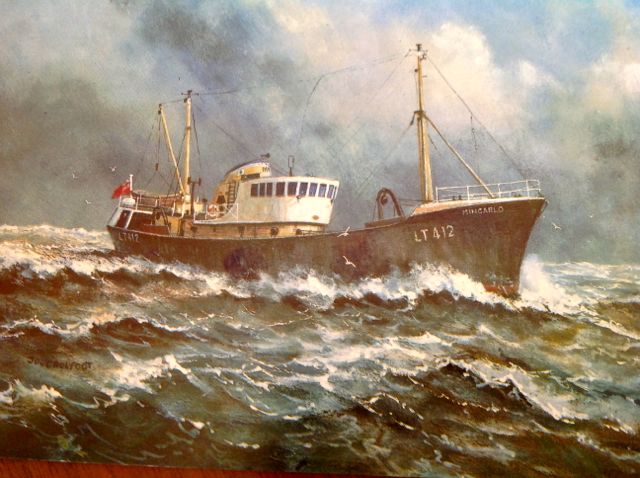
I hadn’t head of te “Boar” War (Sic). Without being boring I must advise that the term “Boer” comes to mind.
In reference to blind adherence that which worked one hundred years or so ago, the first Prince of Cambridge epitomises this. He retarded the British Army in relation to European armies ( particularly the German Army) by insisting that “Brains were Bollocks” and birthright must determine the chain of command in the BEF’s